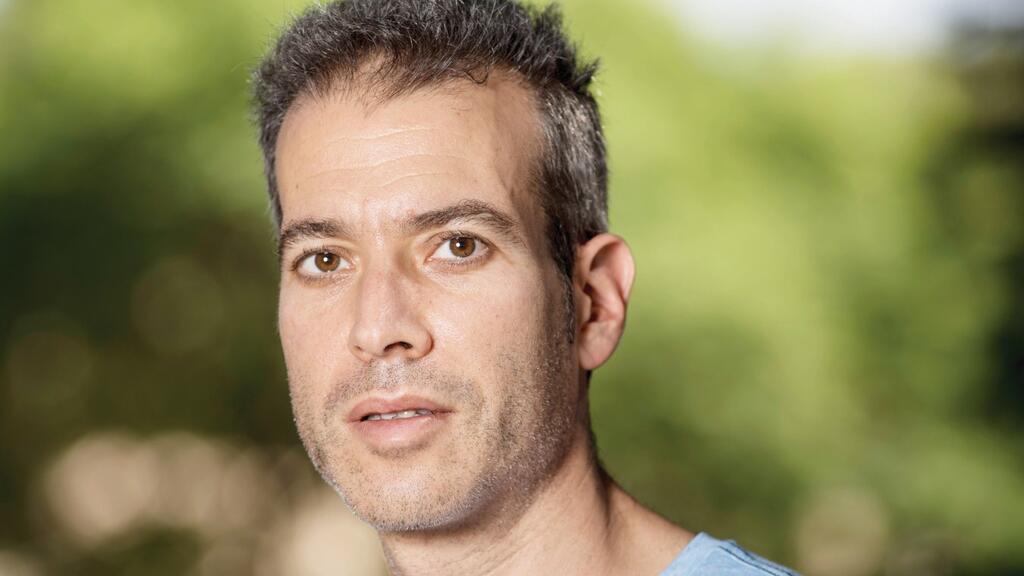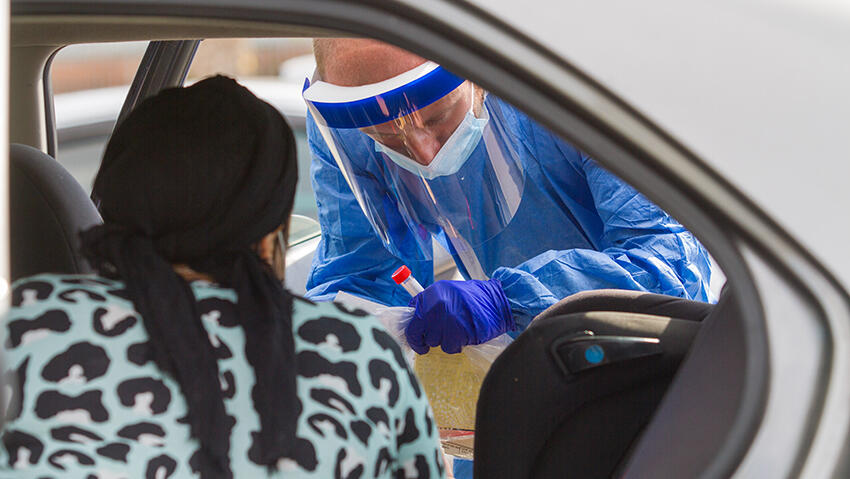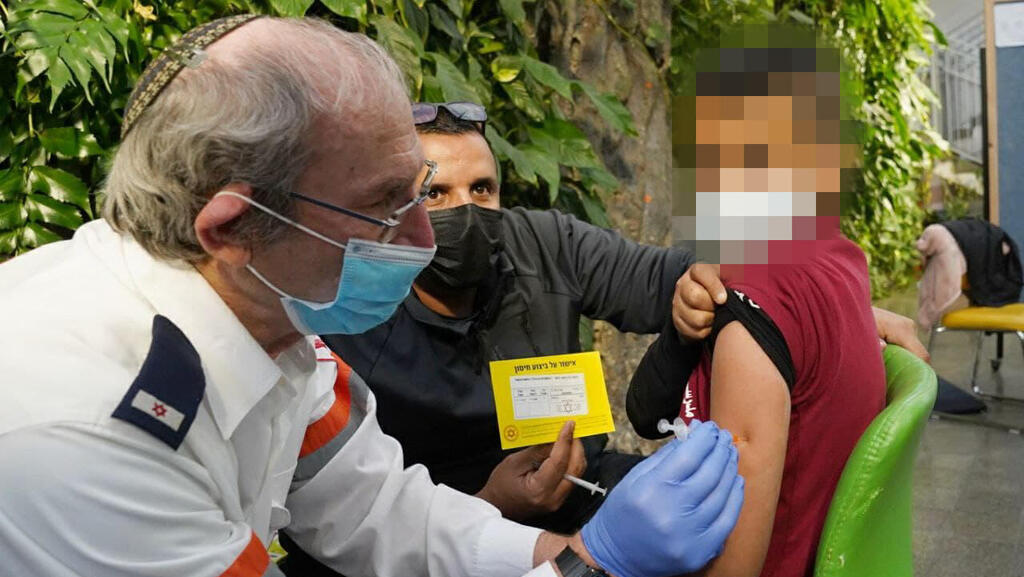In two weeks, Israel's coronavirus caseload will surpass the figures reported in previous COVID waves, a senior health professional said Sunday.
Professor Eran Segal from the Weizmann Institute, who devised a model used to forecast the spread of COVID in Israel and advises the government on the pandemic, told Ynet a considerable wave of morbidity caused by the Omicron variant is the likely scenario for Israel.
"We see an unprecedented spread in Europe and North America, with contagion doubling every couple of days," he said.
"In comparison," he said, "the Delta wave that spread faster than earlier ones, saw cases double every 10 days. This is a dramatic difference. It means that we will see dozens of cases turn into thousands within two to three weeks and surpass records of morbidity.
"We already know we have confirmed cases of Omicron and that it exists in the community, but we do not know if it has already begun spreading. We are also in the dark as to the amount of serious illness we can expect because we see conflicting information from other countries," Segal said.
He said while reports from South Africa, where Omicron first originated, indicate the strain does not lead to severe illness, preliminary data from Britain shows otherwise.
"We do not have proof the variant causes less serious disease but that is our hope," Segal said. "We still must be prepared for a substantial wave of morbidity, and even if we find that Omicron does not lead to more hospitalizations, that advantage will be lost quickly because of the rapid contagion rate," he said.
Segal said mitigation efforts put in place by the government can only buy Israel time but will not prevent the next wave of illness.
4 View gallery


Police enforce health mitigation regulations at Haifa Mall last week
(Photo: Police Spokesperson)
"The time bought should have been used to provide a long-term response through increased vaccination. Unfortunately, we have not been successful in that respect," he said. "We have three million people that have not been fully vaccinated including up to one million children after only 100,000 have received their vaccines," Segal said.
"There are 1.2 million who did not receive the booster shots and hundreds of thousand who have not been vaccinated at all," he said.
Segal notes that as time goes by, more people will lose the immunity provided by vaccines and Israel has failed to use the weeks it had to increase vaccination rates.
"I would like to see mobile vaccination sites, especially in areas where the vaccination rates have been low. People should be incentivized to get vaccinated for their own protection," he said.
He said health officials were already considering the need for a fourth dose of the vaccine and that in some European countries the administration of the booster shot had been moved up and is offered three months after the second instead of the six-month period decided on earlier.
"I think a fourth dose will ultimately be considered because there will be a need to flatten the curb of infection and morbidity in order to avoid a rush on hospitals," he said.
"People must know that if Omicron causes a wave of disease, which is very likely, they will come in contact with the virus on a daily basis," he said. "Vaccines could protect from infection and from serious illness. That is unquestionable and receiving them is the right thing to do," Segal said.




